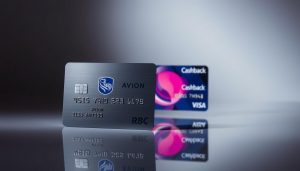Buying a Hyundai is a decision that involves more than just choosing a model. With a range of options from compact sedans to hybrid SUVs, understanding how to approach the shopping experience can help you find the right fit for your needs and financial situation. Whether it’s your first car or a new addition to your household, a thoughtful approach makes a difference.
How Do You Define the Right Hyundai for Your Lifestyle?
Before starting the shopping process, it’s essential to reflect on how you plan to use the vehicle. If your daily routine involves city driving and short commutes, a compact model like the Elantra might be suitable. For larger families or outdoor travel, an SUV such as the Tucson or Santa Fe offers more space and versatility.
Knowing your lifestyle requirements helps narrow down your choices and keeps you focused. It also makes it easier to avoid being swayed by features or upgrades that seem appealing in the moment but don’t serve your actual needs in the long run.
What’s the Advantage of Exploring Trim Levels in Detail?
Each Hyundai model typically comes in several trim levels, each with different features and pricing. While base trims offer solid value, higher trims often include advanced technology, safety enhancements, or interior upgrades. Understanding what each version offers can help you decide if paying more brings actual benefit to your driving experience.
Comparing trims also allows you to identify which features are worth the investment and which ones might not be essential. This insight becomes especially useful during the negotiation phase when you’re deciding what to include in your final purchase.
Should You Consider Certified Pre-Owned Vehicles?
Hyundai’s certified pre-owned (CPO) program can offer a balance between cost savings and peace of mind. CPO vehicles go through rigorous inspections and often come with extended warranties and additional benefits not found in typical used cars. For buyers who want reliability without the price of a brand-new model, this option is worth exploring.
These programs also tend to include roadside assistance and complimentary maintenance for a limited time, which can help reduce early ownership costs. It’s important to compare the CPO offering against both new and traditional used cars to determine what aligns best with your priorities.
How Can Financing Options Influence Your Final Choice?
Financing is a key part of the shopping process, and Hyundai buyers have several avenues to explore. You can apply through Hyundai Motor Finance or seek pre-approval from banks, credit unions, or online lenders. Each source may offer different rates, terms, and promotional opportunities.
Taking time to compare financing options ensures you don’t commit to terms that seem attractive initially but become less favorable over time. Understanding your credit profile and knowing what rates you qualify for helps you enter negotiations with more clarity and confidence.
What Are the Real Costs Beyond the Purchase Price?
The advertised price of a Hyundai is just one part of the total cost. Additional expenses such as taxes, registration fees, insurance premiums, and dealership fees can impact your final budget. Furthermore, the model you choose will also influence your long-term expenses like fuel efficiency and maintenance frequency.
Factoring these costs into your decision early helps prevent financial strain later. A car that fits within your monthly payment range might still exceed your overall budget if those additional charges are overlooked.
Why Is a Thorough Test Drive So Valuable?
A test drive is more than a quick spin around the block. It gives you a real sense of how the car handles, whether it meets your comfort expectations, and how intuitive the controls feel. You can also observe road noise, suspension quality, and visibility—details that might not appear in spec sheets or online reviews.
Scheduling test drives for different models or trim levels can help you compare how each one responds under different conditions. Making this a priority gives you practical insight into what ownership might feel like on a daily basis.
How Does Hyundai’s Warranty Compare to Others?
Hyundai is known for offering one of the most generous warranties in the auto industry. Understanding what it covers, including powertrain protection and roadside assistance, can influence your sense of security when choosing between new and used vehicles.
Even if you are considering a used car, asking whether any original warranty is still active or transferable adds value to the purchase. Warranty coverage isn’t just about repairs—it’s also about peace of mind throughout the ownership experience.
What Role Does Resale Value Play in Your Decision?
While you may plan to keep your Hyundai for many years, it’s still worth thinking ahead. Certain models and trims retain their value better than others due to demand, reputation, and cost of ownership. Vehicles with better resale value can offer stronger trade-in options or private sale opportunities down the line.
Doing some research on long-term depreciation trends allows you to make choices that benefit not just the present but your financial position in the future as well. It can also affect which features or packages are more worthwhile at the time of purchase.
*You will stay on the same site.
Is It Worth Waiting for Seasonal Promotions?
Hyundai often runs promotions throughout the year, especially during holidays and model-year transitions. These can include cashback offers, lower financing rates, or bonus warranties. Timing your purchase around these events could result in meaningful savings or extra benefits.
However, promotions should not be the sole driver of your decision. If a car meets your needs and fits your budget, the right time to buy is when you are prepared—not just when a sale is advertised. Waiting only makes sense if your timeline is flexible and your research is complete.
Are You Comfortable with the Final Offer?
Before finalizing your purchase, take time to review all aspects of the deal. Double-check that the price, terms, and included features align with your expectations. If anything feels unclear or rushed, ask for clarification or step back to consider your options.
A confident purchase begins with understanding and preparation. When you walk away from the dealership, your goal should be to feel sure about the decision—not just relieved that the process is over.





